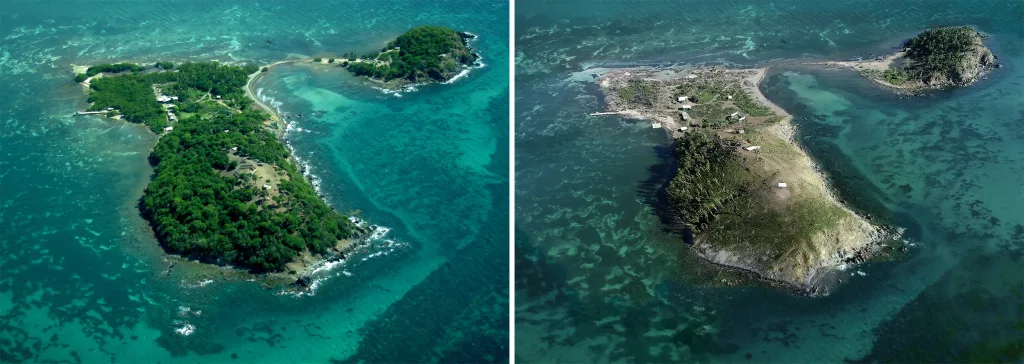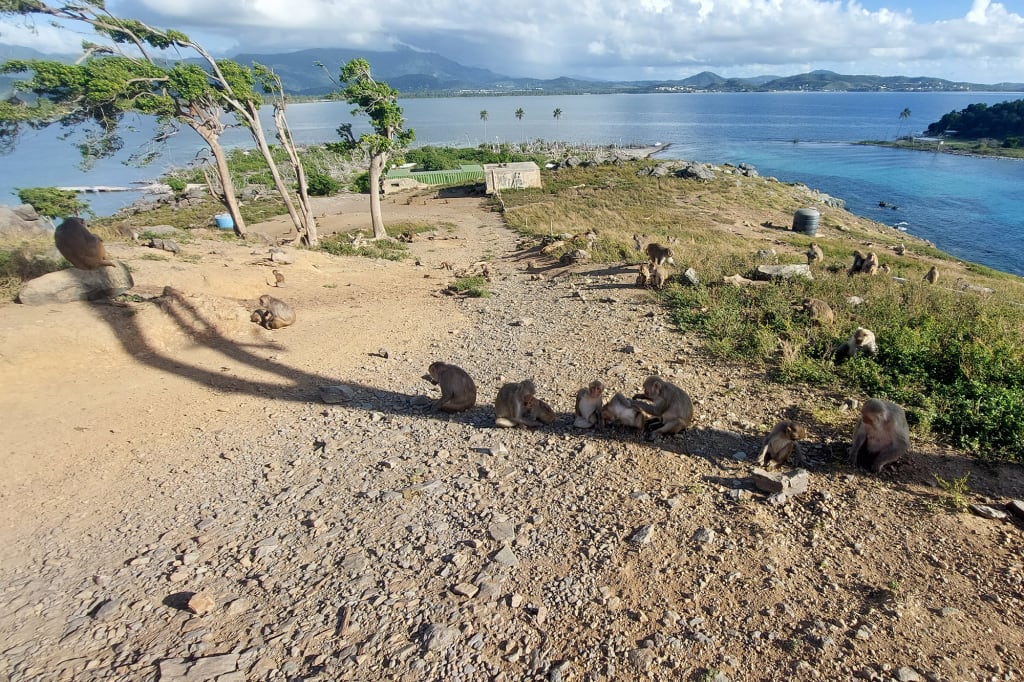By Jessica Hullinger, Fast Company
A new study found that instead of increasing conflict, the environmental challenges made the monkeys more social and cooperative.
Human-caused climate change is wreaking havoc on ecosystems and landscapes before our eyes. But a new study published in the journal Science adds to a growing pile of evidence that some animals can adapt to these changes in order to increase their chances of survival. In some cases, this may involve a societal shift toward more cooperation.
In 2017, Hurricane Maria slammed into Puerto Rico as a Category 4 storm, killing more than 3,000 people. The storm devastated the small island of Cayo Santiago, also known as Monkey Island for its population of rhesus macaques. Most of the monkeys survived, but their home now looked very different: More than 60% of the island’s trees were destroyed, limiting the animals’ access to shade and leaving them vulnerable to the island’s searing temperatures. Scientists expected this new strain on resources would lead to more conflict and confrontation. After all, these are prickly primates, with a reputation for being what the researchers call “despotic.”

To see if they were right, the researchers analyzed and compared the monkeys’ behaviors over 10 years—both before and after the hurricane. These monkeys are free ranging, but are managed by the Caribbean Primate Research Center, and they’ve been monitored almost continuously since their colony was established in 1938, so the researchers had plenty of observational data to pull from.
They wanted to know how physically close the monkeys got to one another and for how long because “proximity in close space is tightly linked to resource sharing: Macaques that do not wish to share a resource do not tolerate others in close proximity.” They also wanted to know whether there was any link between social tolerance and survival.
What they discovered surprised them. After the hurricane, the monkeys demonstrated a behavioral change. They wanted to be closer to others than they had before. And it wasn’t that they paired up and were only near a single individual—they seemed willing to be closer to more monkeys, and gather together in groups. And the effect wasn’t just limited to the hottest, most dangerous times of the day when access to shade was essential. The monkeys were happy to hang out together during the cooler hours, too.
“To access shade, they need to tolerate—and be tolerated by—others, and we found that this tolerance spills over into other daily interactions,” said one of the study’s authors, Camille Testard from the University of Pennsylvania, in a press release. “In effect, the hurricane changed the rules of the game in the monkeys’ society.”

This behavioral change was strongest immediately after the storm but persisted for up to five years, and it cannot be explained by factors like population shifts or food sources. Instead, the researchers say it “might reflect stronger social cohesion, which is often observed in humans following natural disasters.”
As for what all this meant for survival, the researchers found that being less aggressive was “the critical predictor of survival” for the monkeys and was associated with a 42% decrease in risk of death. The authors note that there’s a similar effect in humans: Studies have shown that when people have strong social relationships with others, their “likelihood of survival” goes up by a staggering 50% compared to those with weaker social relationships.
The study’s authors point out that these behavioral changes may have been connected to the monkeys’ inability to leave their island for cooler climes. They were stranded there. “The macaques had to share space or die,” said the study’s lead author, Lauren Brent, a professor at the University of Exeter. “For group-living animals, social relationships may allow them to cope with disturbances in the environment, including human-induced climate change.”
